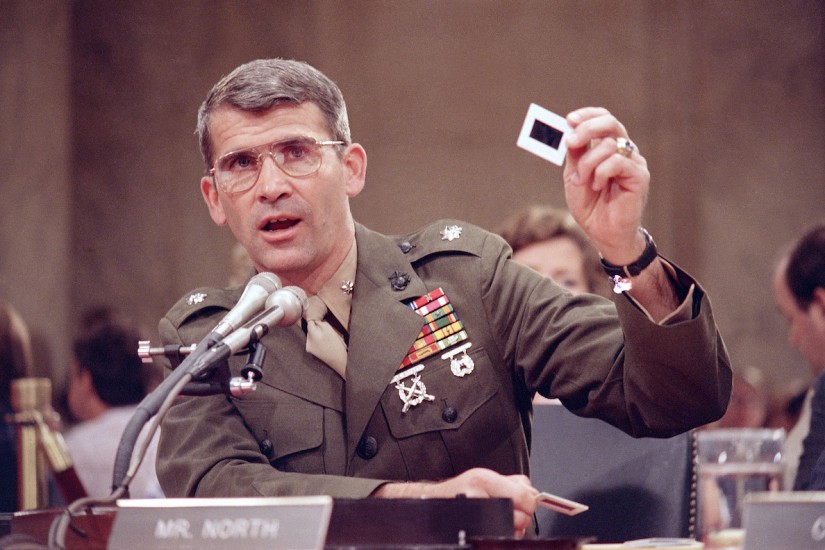Finally, Iran/Contra was at its heart an ideological project. It wasn’t enough for militarists and neocons to figure out ways to secretly wage an illegal war. Congressional oversight was only part of the problem, and easily overcome. What had to be defeated was the widespread, diffuse anti-militarism and cynicism regarding the use of American power that had overtaken the American public since the 1960s, with the loss of the war in Vietnam and the Watergate scandal.
To this end, the illegal war against the Sandinistas provided a chance: Reagan defended support of the Contras in highly idealistic terms, describing the counterinsurgencies as the “moral equivalents” of the founding fathers, as carrying Tom Paine’s and Abraham Lincoln’s torch. This is the first time that the modern Republican Party used such grandiose language to describe a foreign intervention; before this, from Wilson to JFK, similar lofty rhetoric had been the property of Democrats. Similarly, intellectuals on the religious right, along with mainline conservative Protestants, used the war against Liberation Theology—identified by one as “the single most critical problem that Christianity has faced in all of its 2000 year history”—to offer a proactive ethical defense of markets and militarism, to insist that wealth and power were a sign of God’s grace. And neocons got to test arguments—which they would ultimately win after 9/11—concerning the power of the executive branch to wage unaccountable war. Wyoming Representative Dick Cheney’s office wrote the dissenting report to the damning congressional investigation, which made “the case for presidential primacy over foreign relations.” Asked years later, in 2005, as his war in Iraq was collapsing into catastrophe, where his views concerning war and the presidency come from, Vice President Cheney responded: “If you want reference to an obscure text, go look at the minority views that were filed with the Iran/Contra committee.”
So Iran/Contra was, in its sum, a vast logistical and ideological work-around, a way both to bypass specific restrictions in the wake of Vietnam and Watergate that Congress placed on the executive branch to wage war and conduct covert activities and to neutralize a more diffuse antiwar and anti-interventionist sentiment that had overcome the American public. Support for the Contras allowed the diverse secular and religious strains of the New Right to once again assert the moral righteousness of militarism and markets. It shouldn’t, then, be thought of as a conspiracy, but as the conspiracy, a conspiracy of conspiracies—a crime of state that makes all other crimes of state possible, less Dan Brown’s Da Vinci Code (a conspiracy of a small cabal) and more James Ellroy’s The Cold Six Thousand (the totality of American ideology).
